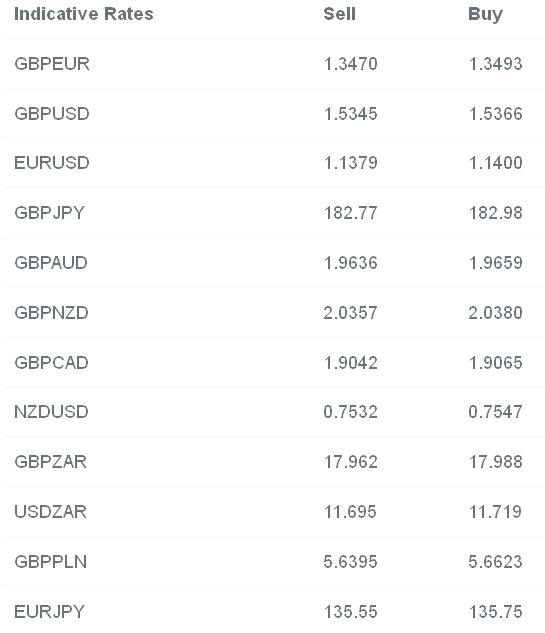Inflation in the UK fell to a 25 year low yesterday as CPI rose only 0.3% in the past 12 months, lower than the 0.4% markets had been looking for. Regular readers of these updates will not be surprised that inflation as a headline reading has continued to move lower through January.
Food and energy prices have endured record annual falls through 2014 – 2.5% and 16.2% respectively – and we are already starting to see the positive impact that this is having on consumer disposable income. Nobody in the world wants to pay more for food and energy; the falls in prices are a de facto benefit for the UK economy.
The other side of the coin is that core prices – inflation without food or energy components – actually rose in January from 1.3% to 1.4%. This shows that underlying prices are nowhere near levels that could in any way be considered deflationary or at risk of deflation.
Producer prices, released at the same time, hint at further negative pressure on the inflation basket however. Factory input prices – what manufacturers are paying for raw materials – fell 14.2% on the year. While this is largely a function of the moves in oil markets, the strong pound will have allowed for savings here as well and these price falls will eventually make their way through to the figures we see on our till receipt at the end of a week’s shop.
All together, these inflation numbers are very much in keeping with the tone of last week’s Bank of England Inflation Report; lower in the short term but coming higher later in the year and the underlying level of those core prices allowed sterling a bit of security yesterday.
I am looking for sterling to benefit from today’s jobs report at 09.30. Wages are rising in the UK in real terms i.e. at a faster rate than rises in inflation are being seen. Last month we saw real wages hit the highest in nearly seven years and we expect the difference between wages and inflation to rise even more. I am looking for wages to increase by 1.9% on the year, which should push real wages to an increase of 1.4%, the highest since April 2008.
Away from the proud pound, the euro has once again remained stable as rumours suggests that a deal on Greece could be forthcoming in the next few days. The negotiations have been boiled down to what conditions Greece’s creditors want to attach to Greece’s current loan arrangement. If this can be extended by six months then valuable negotiation time has been bought. It is all about those conditions however. Germany issued a statement saying they’d wait for the details before commenting, which makes a difference from the usual ‘no’.
Japanese yen has strengthened overnight as the Bank of Japan pledged to maintain its current stimulus level of 80 trillion yen a year. While we have seen exports pick up within the economy following the devaluation of the yen, the falls in oil prices have made the creation and maintenance of a 2% inflation target a difficult task for policymakers. We are still looking for more stimulus from the Japanese authorities, despite reports to the contrary last week, possibly as early as April.
Dollar reaction to tonight’s Federal Reserve minutes is a tough one to call. Hawks are focusing on upbeat growth, jobs and investment prospects while doves maintain that inflation pressures are yet to be seen within the economy. Fed Chair Janet Yellen testifies in front of Congress next week and we may get more insight from that than tonight’s publication.

